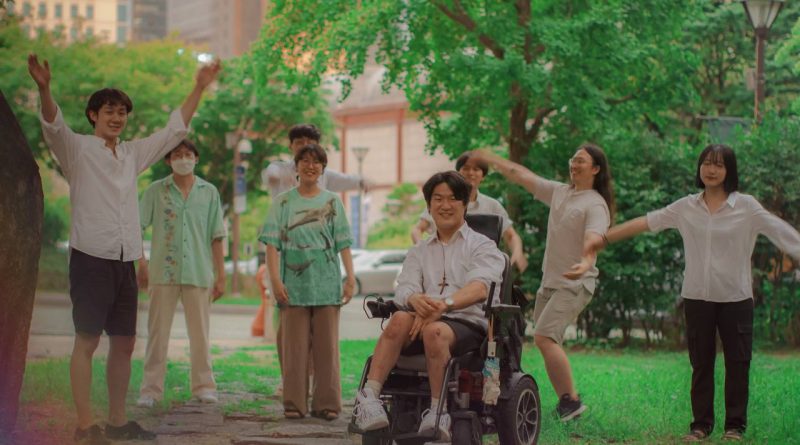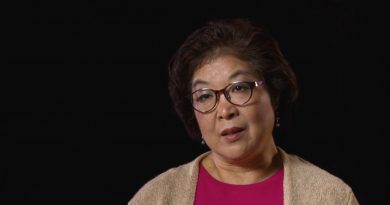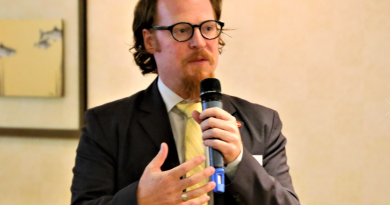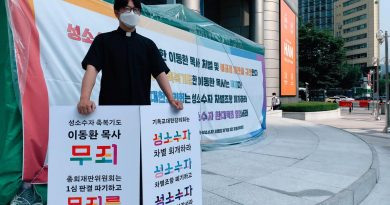Discrimination and Hatred Taking Place in the Korean Church
In this issue, we will look at the reality of “discrimination and hatred” taking place in the Korean Church through an interview with Mr. Oh Se-chan of a PCK seminary. In May 2018, five seminary students, including Mr. Oh, were suspended, put on probation, and severely warned by the seminary for supporting LGBTQ+ issues. They won the disciplinary invalidation lawsuit, but Mr. Oh failed the final interview for ordination. The following is an interview with Mr. Oh.
1. What happened?
On May 17, 2018, I attended the chapel on the IDAHO Day, International Sexual Minority Day. I worshiped with my friends in a rainbow colored shirt and we took a picture together afterwards. At that time, the Presbyterian Theological Seminary (Presbyterian Church in Korea <Tonghap>), which I belong to, was requiring a pledge for admission of all new applicants stating that they can be disadvantaged if they defend LGBTQ+ affirming ideas. Since 2017, gender and sexuality issues have been like black holes, consuming all other issues in and out of the denomination. At that time, there was a big scandal with a case of hereditary succession at Myungsung Church, the largest church in our denomination, and there were a number of issues being resolved, including the consolidation of the seminaries.
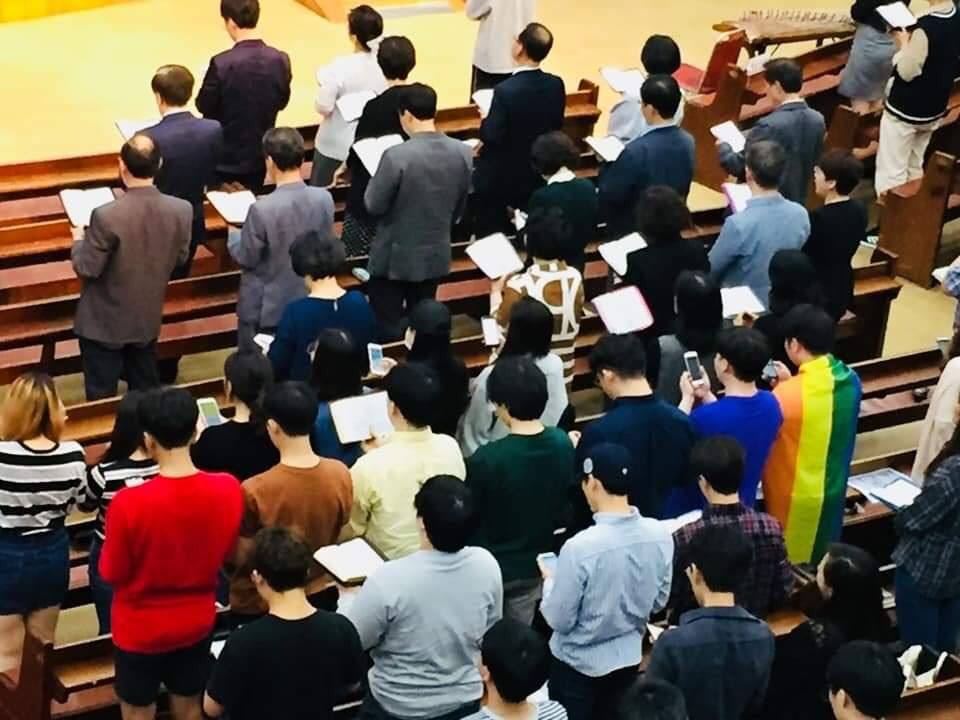
We wanted to express a little resistance to this violent move to exclude LGBTQ persons and their allies without any discussion or research process.
But this small expression quickly spread to become the loudest disturbance of the denomination. One media company that was accused of heresy by our Church branded us as, “people who should not be in the seminary”, because we defile the chapel and church. Our seminary’s response ironically accused us for our actions and launched an investigation.
In the course of the investigation, the school did not tell us the reason why we were accused or what regulations we had violated. We were just branded in a moment and after the undemocratic investigation, the school imposed disciplinary measures such as suspension, probation, and strict warnings on us. In the course of the investigation, the professors of the investigators sympathized with our intentions and awareness of the problem, and told us that this should have been dealt with at a research and academic level rather than disciplinary level. So the resulting disciplinary action was unexpected. The school sent our disciplinary information in official letters to our presbytery and our churches, and attempted to distribute it to the general assembly members that year. The school said these measures were meant to protect us, but this has had the effect of branding us as problematic students and ministry candidates.
We filed for retrial with the school authorities, but it was not accepted. We were only told, “the hereditary succession bill for Myungsung Church was passed because you had separated the power of the progressive wings of the Church“, that “you have to accept the disciplinary measures because it is the outcome of our professors’ tears and prayers”, and “if you do not like your Church, you have to leave.”
So, we thought that if this issue was concluded like this, it would be a precedent for those who voiced solidarity in schools to be disciplined easily in the future, so we should continue the fight somehow. I asked for help if I could argue legally on the validity of disciplinary actions, and in that winter with the help of some lawyers we brought this case to the court. The lawsuit began and rumors began to spread in our seminary that, “the purpose of the law suit is money” or, “we are thirsty for attention.” After many twists and turns, the court ruled that the disciplinary action was unfair. But the president of our graduate school posted on the alumni community bulletin board that the school lost the case because of the court’s poor understanding of the characteristics of the religious institution or some procedural mistakes, saying that they would impose the discipline again. Then the school revised the existing school rules and regulations to create plenty room for disciplinary action.
Although we won the lawsuit, the school demanded an apology and a reflection from us and delayed the process of reinstatement, creating an uncomfortable atmosphere. In such a process, we were put in a difficult situation to continue our ministry and study. I passed all the procedures and tests for ordination, but I was accused of being a “same-sex advocate” by the Task Force on Homosexuality of the General Assembly and was interviewed in front of more than 20 male pastors in their 50s and 60s. Eventually I could not pass the tests and interview. I may not have a second chance for the tests for ordination as I have been branded as a same-sex advocate by my congregation and presbytery. In this process, as all those joined with us were hurt a lot, we started the second lawsuit demanding reparation to the school authorities for an unfair disciplinary action.
What was revealed during this lawsuit was that the disciplinary action against us was unfair and that the professors who said, “they are sorry and want to help us”, while eating and talking with us were actually members of the school’s committee to keep an eye on us and report back to the school. Through a series of anachronistic and rude incidents caused by our school, fear and anxiety about the situation surrounding us are growing, and we are losing trust in people.
2. What do you think about the provisions of the PCK seminary that prohibits recruiting the LGBTQ and their allies?
It is disastrous that the rules of punishment for thought, conscience, and existence remain in the 21st century. In fact, it has been proved in history that humankind has used thought, conscience, and existence as the basis for punishment including numerous killings and violence. These norms may have seemed reasonable and logical at the time, but “the history of distinguishing and discriminating” is a tragic past, leaving a number of indelible stains that remain today. And this provision of the PCK will remain as a disgraceful part of history together with those who proposed it and agreed to it, and those who abandoned their responsibilities and remain silent in their respective places. In a huge structure, I keep thinking of people suffering from the thought of betraying their existential conscience to survive in front of a violent system. Professors and faculties must show responsibility and sincerity in their roles as intellectuals, and church pastors and employees must give their share of love and reflection in their respective positions and pray so that the voices of reflection can be gathered in the field of their ministry.
3. Tell us about the Korean Church’s position on discrimination and hatred, especially the situation in PCK.
Christianity, which is not loved by our society due to its irrelevance to the social context and common sense, will lose its reason for existence. I don’t think the dominating voice of discrimination and hatred in the Korean Church represents the overall Korean Church’s position. We will soon find that this voice is overrepresented. It is ironic that the PCK, which should advocate for representative democracy, is not able to reflect the voices of its members.
I think we should achieve a more mature democracy in the Church and create a place where we can communicate freely, safely, and with respect. If these efforts are delayed, there is a worry that the PCK will remain one of the Churches that adheres to the voice of discrimination and hatred until the very end as this Church, the biggest Presbyterian Church in Korean society, stands at the center of this voice.
4. What would you like to say to the ecumenical community around the world?
I don’t think the ecumenical community around the world is aware of this situation in Korea. We are situated in a reality in which the LGBTQ community and their allies are severely excluded, but it is too painful to interpret the present situation as a kind of “rite of passage” in the process of social progress. So we need to be more connected with our ecumenical friends. We need to feel more concern and solidarity from them even if it gets uncomfortable. We are talking about the fundamental question about whether Christianity can be Christianity.
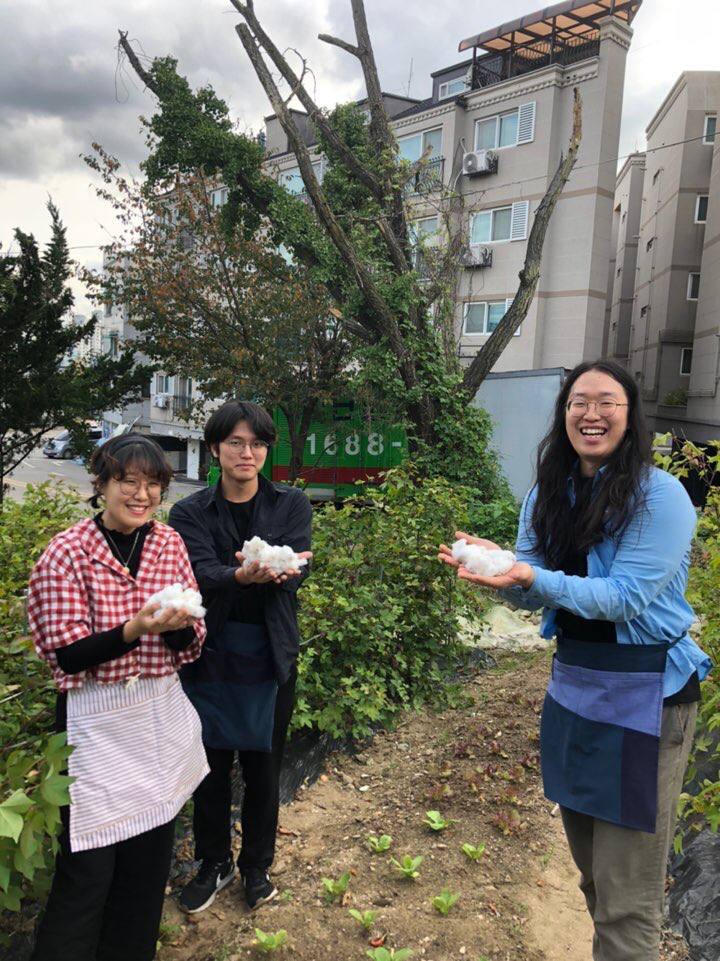
- Interview: Kim Minji
- Translation: Shin Seung-min

